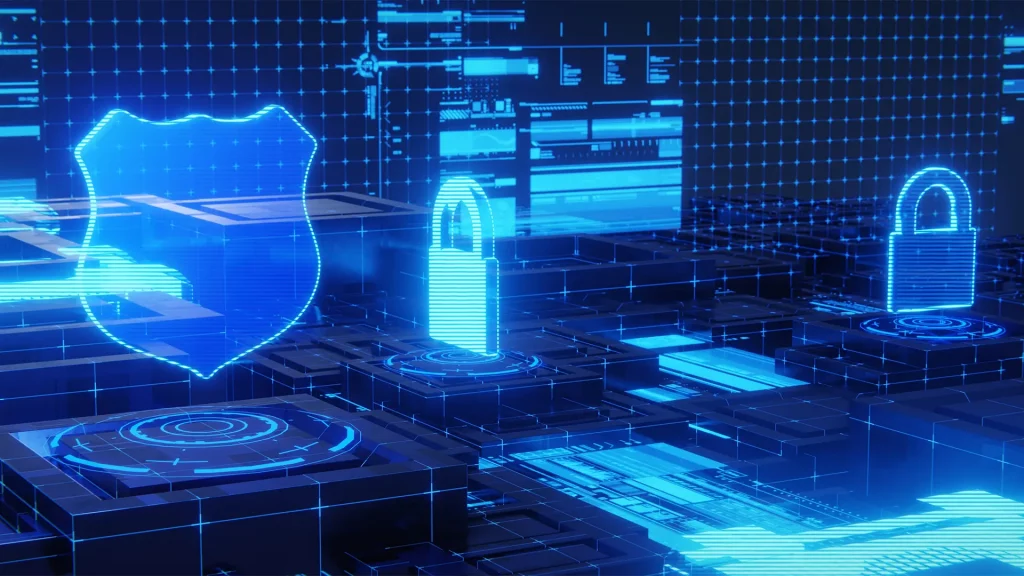Middle East Grapples with Escalating Cyber Threats Amidst Geopolitical Tensions: Report


In Brief
Middle East is the second region in the world with the highest average cost per data breach after the USA, according to a report from IBM.

The Middle East is the second region in the world with the highest average cost per data breach after the USA. Recently, cybersecurity incidents have surged in the Middle East to a record average of $8.07 Million per data breach.
The figure surged from $7.46 million in 2022, according to IBM’s Cost of a Data Breach report 2023.
Cyberattacks are increasing and becoming common within the region, with political instability and geopolitical tensions being one of the topmost reasons that can be attributed to such a surge.
Recent weeks have witnessed a sharp escalation in conflicts across the Middle East, with the Israel-Gaza dispute reaching unprecedented heights, capturing global attention. These longstanding geopolitical and religious rivalries, compounded by the nuclear ambitions of Iran, have created an ever-evolving atmosphere, giving rise to a new battleground in cyberspace, as per London-based SecurityHQ – a global managed security service provider (MSSP).
The region’s historical struggles, including those in Libya, Syria, Iraq and Yemen, continue to add fuel to the fire — aggravating hostility and providing opportunities for cyber adversaries. With the advent of the digital era, political adversaries are exploiting vulnerabilities online, transforming the virtual landscape into a critical frontline.
The oil and gas industries, vital to the region’s economy, have emerged as prime targets for Advanced Persistent Threats (APTs) and other malicious groups globally.
Iran, a key player in the region reportedly funds various state-sponsored groups targeting non-allied nations, including the UAE, KSA and Israel. APT groups like APT 33 (Refined Kitten), APT 34 (OilRig), and others associated with Iran exhibit a growing sophistication in their cyber capabilities.
These groups, distinct from typical hacktivists or ransomware attackers, focus on gaining insider intelligence, disrupting critical infrastructure, and achieving strategic objectives through cyber warfare. Their efforts include surveillance of the region’s political movements, maintaining control, and obtaining foreign technologies and intelligence.
Fortifying Defenses Against Cyberattacks
In the face of escalating geopolitical tensions and a surge in cyber threats, Middle Eastern nations are fortifying their digital defenses to protect critical infrastructure and sensitive data.
Moreover, foreseeing the need to combat the surge in cyber threats, Middle Eastern nations are investing in cybersecurity. By 2030, the Cyber Threat Intelligence (CTI) market in the region is projected to exceed $31 billion, reflecting a clear intention to bolster defences against targeted cyber-attacks.
They are implementing robust measures. Israel being surrounded historically by unfriendly neighbors, has transformed into a well-secured fortress, prioritizing security across industries.
Education plays a key role in cybersecurity initiatives, with Israel offering the first-ever high school cybersecurity course and a cybersecurity PhD program. Collaborations between nations, such as the UAE-Israel-Microsoft partnership and the Counter Ransomware Initiative (CRI), demonstrate a united front against cyber threats.
Middle Eastern nations, foreseeing a compound annual growth rate of 20% in cybersecurity, are taking proactive measures. Improved Data Protection Laws in nations like UAE, Bahrain and Qatar reflect a commitment to securing user data.
To counteract the growing threats, organizations are advised to adopt a dual approach to cybersecurity, combining internal teams with guidance from experienced external professionals. Managed Security Services Providers (MSSPs), such as SecurityHQ, offer expertise, cutting-edge technology and a collaborative approach to minimize cyber risks and fortify defenses.
In a region grappling with multifaceted challenges, the convergence of geopolitical tensions and the digital age underscores the imperative for robust cybersecurity measures to safeguard national interests and critical infrastructure.
Disclaimer
In line with the Trust Project guidelines, please note that the information provided on this page is not intended to be and should not be interpreted as legal, tax, investment, financial, or any other form of advice. It is important to only invest what you can afford to lose and to seek independent financial advice if you have any doubts. For further information, we suggest referring to the terms and conditions as well as the help and support pages provided by the issuer or advertiser. MetaversePost is committed to accurate, unbiased reporting, but market conditions are subject to change without notice.
About The Author
Kumar is an experienced Tech Journalist with a specialization in the dynamic intersections of AI/ML, marketing technology, and emerging fields such as crypto, blockchain, and NFTs. With over 3 years of experience in the industry, Kumar has established a proven track record in crafting compelling narratives, conducting insightful interviews, and delivering comprehensive insights. Kumar's expertise lies in producing high-impact content, including articles, reports, and research publications for prominent industry platforms. With a unique skill set that combines technical knowledge and storytelling, Kumar excels at communicating complex technological concepts to diverse audiences in a clear and engaging manner.
More articles

Kumar is an experienced Tech Journalist with a specialization in the dynamic intersections of AI/ML, marketing technology, and emerging fields such as crypto, blockchain, and NFTs. With over 3 years of experience in the industry, Kumar has established a proven track record in crafting compelling narratives, conducting insightful interviews, and delivering comprehensive insights. Kumar's expertise lies in producing high-impact content, including articles, reports, and research publications for prominent industry platforms. With a unique skill set that combines technical knowledge and storytelling, Kumar excels at communicating complex technological concepts to diverse audiences in a clear and engaging manner.


















































